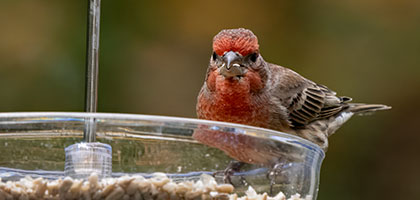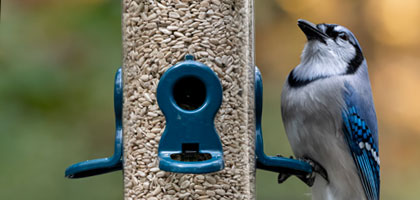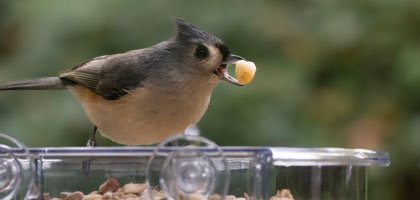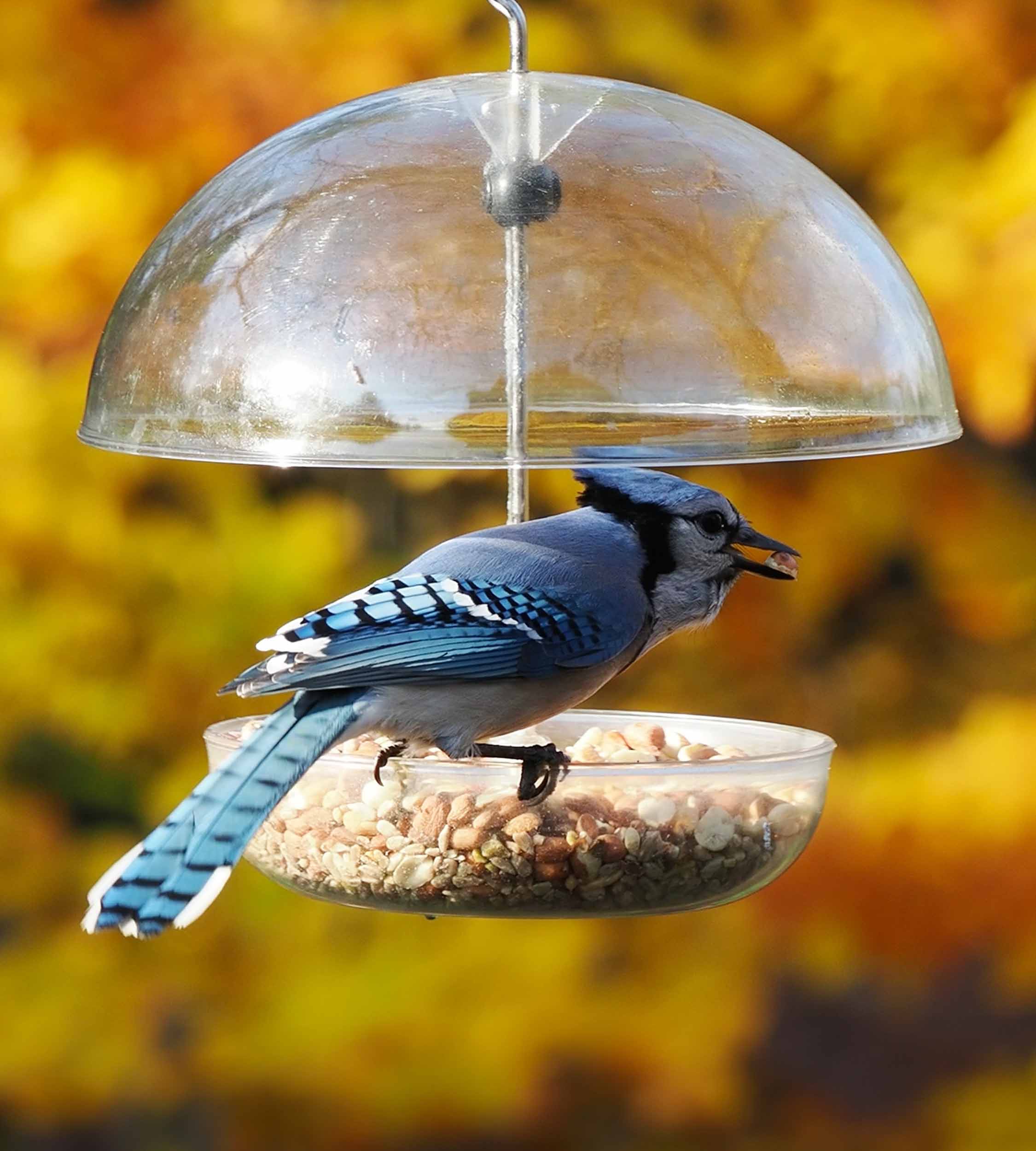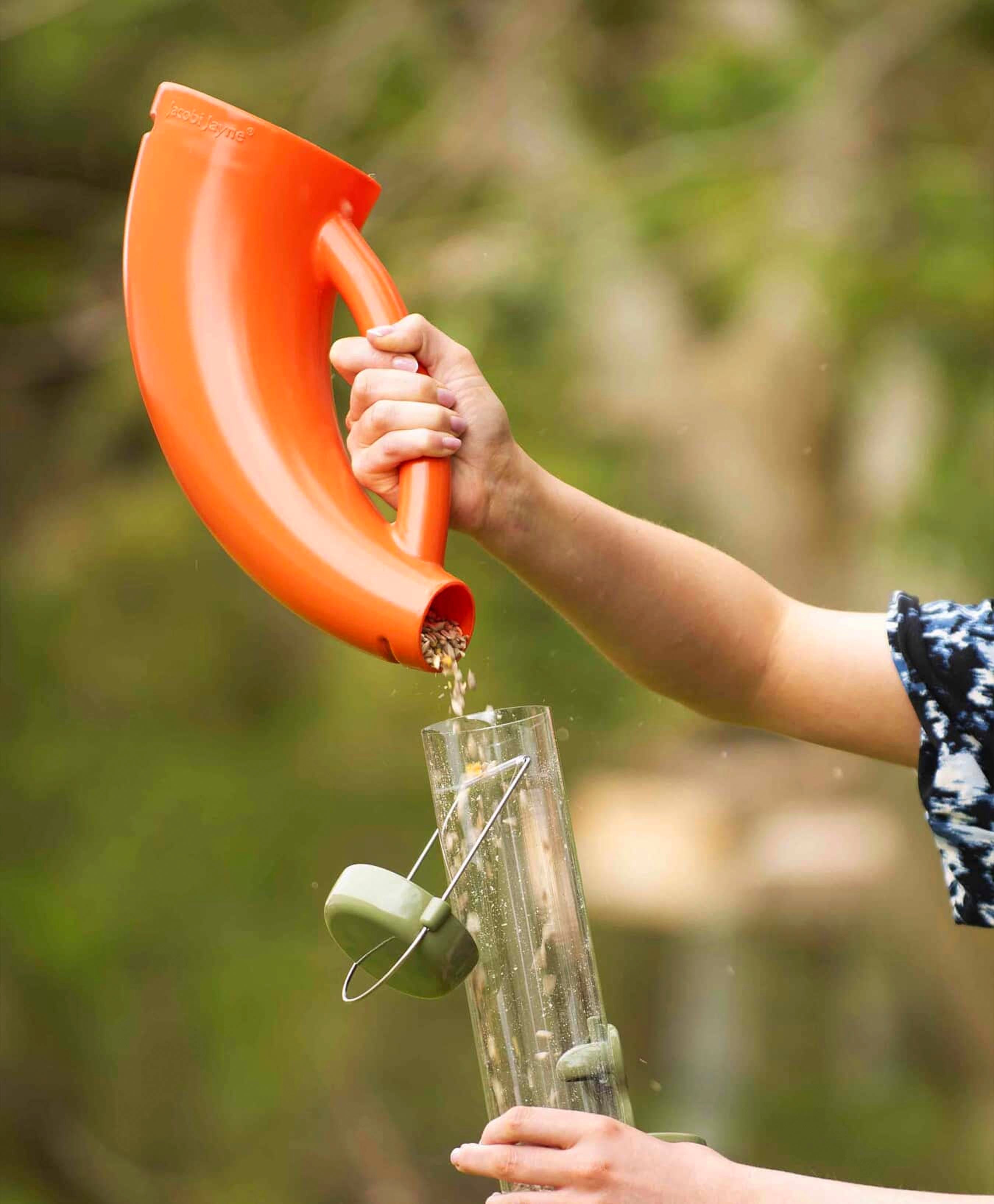Bird feeding is a rewarding hobby for many. It brings joy, fosters a connection with nature, and supports local wildlife.
One way to enhance this experience is by understanding the nutritional needs of birds. This includes exploring different types of bird food, such as flax seeds.
Flax seeds are a powerhouse of nutrition. They offer numerous benefits for birds, from promoting feather health to supporting their immune system.
In this guide, we'll delve into the benefits of flax seeds for birds. We'll also discuss how to incorporate them into your bird feeding routine.
What Are Flax Seeds?
Flax seeds are small, brown, or golden seeds from the flax plant. Originally cultivated for fiber, they are now popular for their nutritional properties.
These seeds are rich in Omega-3 fatty acids, fiber, and lignans. Their nutritional profile makes them a valuable addition to both human and animal diets, including birds. Flax seeds are versatile, making them easy to include in various bird feeding setups.
Nutritional Profile of Flax Seeds
Flax seeds are a nutritional powerhouse, providing essential nutrients for birds. They are rich in Omega-3 fatty acids, crucial for maintaining healthy feathers and skin.
In addition to healthy fats, flax seeds also contain high levels of fiber, aiding in digestive health. This makes them an excellent choice for birds prone to digestive issues.
Key nutrients in flax seeds include:
- Omega-3 fatty acids
- Fiber
- Lignans
- Vitamin B complex
- Magnesium
- Manganese
These nutrients collectively support overall bird health, making flax seeds a beneficial supplement to their diet.
The Importance of Omega-3 Fatty Acids for Birds
Omega-3 fatty acids play a vital role in avian health. These essential fats help in maintaining vibrant plumage, ensuring feathers are both strong and glossy.
In addition to feather health, Omega-3s support cardiovascular function in birds. They help reduce inflammation, providing relief for birds suffering from inflammatory conditions like arthritis. Including flax seeds in their diet ensures birds receive these crucial fats, contributing to overall well-being and vitality.
Antioxidant Properties of Flax Seeds and Bird Immunity
Flax seeds are rich in lignans, powerful antioxidants that bolster bird immunity. These compounds help fight off free radicals that can damage cells.
By supporting the immune system, flax seeds contribute to healthier birds that resist infections better. Strong immune function is crucial for both wild and pet birds, ensuring they thrive in various environments. Adding flax seeds to their diet can significantly enhance their natural defenses, promoting longevity and robust health.
Flax Seeds in a Bird's Diet: How to Serve
Introducing flax seeds to a bird's diet requires careful planning. Start by offering small amounts to see how the birds respond.
Flax seeds can be prepared in various ways to suit different bird species. Here are some serving suggestions:
- Whole seeds: Ideal for larger birds like bluejays and woodpeckers.
- Ground seeds: Easier for smaller species like finches and chickadees.
- Soaked seeds: Perfect for young or elderly birds with sensitive digestion.
Gradually increase the quantity while monitoring the birds' health and behavior for the best results.
The Benefits of Fiber from Flax Seeds for Digestive Health
Fiber in flax seeds plays a crucial role in maintaining a bird's digestive health. It supports regular bowel movements and prevents constipation.
By promoting the growth of beneficial gut bacteria, fiber enhances nutrient absorption. Birds benefit from a well-functioning digestive system, leading to improved overall health and vitality. Including flax seeds in their diet ensures they get the fiber they need for optimal digestion.
Flax Seeds for Different Bird Species
Flax seeds are beneficial for a diverse range of bird species. Not all birds have the same dietary needs, so understanding which species can benefit most is key.
Birds like finches, cardinals, and chickadees show a noticeable preference for flax seeds. These species find both the taste and nutrition appealing, incorporating them readily into their diets.
Other species, such as bluejays and woodpeckers, also benefit from the Omega-3 and other nutrients in flax seeds.
Flax seeds can serve various bird species, supporting their dietary needs and overall health. Here's a list of some bird species that benefit from flax seeds:
- Finches
- Cardinals
- Chickadees
- Bluejays
- Woodpeckers
Safe Feeding Practices: Introducing Flax Seeds Gradually
When introducing flax seeds to birds, it's crucial to proceed gradually. Sudden changes in diet can lead to digestive upset in birds.
Start by mixing small amounts of flax seeds with their regular bird seed. Gradually increase the quantity as the birds adjust to the new addition.
Watching for any signs of digestive issues is important, ensuring that the dietary transition is smooth and well-received. This cautious approach helps birds benefit from flax seeds without any discomfort.
Storing Flax Seeds: Maintaining Nutritional Value
To preserve the nutritional benefits of flax seeds, proper storage is essential. Keep them in a cool, dry place to maintain their freshness.
Using airtight containers can help prevent exposure to moisture and air. This ensures the seeds remain free from mold and spoilage, allowing birds to enjoy their full nutritional value.
Flax Seeds as Part of a Balanced Bird Diet
A balanced diet is vital for a bird's health and vitality. Flax seeds can be a nutritious supplement, but they should not be the sole food source. Offering variety ensures birds receive all necessary nutrients.
When incorporating flax seeds into a bird's diet, mix them with other foods. Consider these options:
- Fresh fruit
- Mealworms
- Nuts
This combination provides a rich diet, enhancing overall bird wellbeing. Variety not only supplies different nutrients but also keeps feeding interesting for birds, promoting better eating habits.
Attracting a Variety of Birds with Flax Seeds
Flax seeds are appealing to various bird species due to their nutritional value. Offering them can attract diverse birds, enriching your bird-watching experience. Birds such as bluejays, woodpeckers, and orioles find these seeds enticing.
Providing flax seeds in your feeders supports attracting both frequent visitors and new birds. Creating a welcoming environment enhances your yard's biodiversity. Using flax seeds as part of your feeding strategy makes your space a popular spot for a range of colorful birds.
Flax Seeds and Bird Feeder Types
Choosing the right feeder for flax seeds can enhance the feeding experience for birds. Flax seeds can fit well in different kinds of feeders, promoting easier access for various bird species. When deciding on a feeder, consider the types of birds you wish to attract.
The following feeders are suitable for flax seeds:
- Mesh Feeders: Ideal for smaller seeds, allowing finches and chickadees easy access.
- Nut Feeders: Prevent waste by dispensing small quantities at a time.
- Caged Feeders: Protect seeds from larger animals like raccoons.
It's essential to match the feeder type to the bird's feeding habits to maximize your feeding success. Using the right feeders helps maintain a clean and inviting bird-friendly environment, ensuring both safety and satisfaction for your feathered guests.
Conclusion: The Overall Impact of Flax Seeds on Bird Health
Flax seeds offer significant benefits to bird health, providing essential nutrients like Omega-3 fatty acids. These nutrients support vibrant feathers and robust immune systems, enhancing overall wellness.
Incorporating flax seeds into a bird's diet can attract a variety of species. By including them in feeding routines, bird enthusiasts can promote healthier, more diverse bird populations in their communities.
